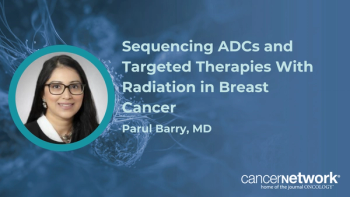
|Articles|April 20, 2017
Study Reveals Treatment Strategy for Triple-Negative Breast Cancer
Author(s)Mateusz Opyrchal, MD, PhD
Mateusz Opyrchal, MD, PhD, talks about how the Inhibition of AURKA induces Raf1-independent activation of MAPK pathway in breast cancer cells.
Advertisement
Mateusz Opyrchal, MD, PhD, of Roswell Park Cancer Institute in Buffalo, talks about a novel interaction between AURKA and the MAPK pathway in wild-type BRAF breast cancer cells and the cytotoxic effect of AURKA- and MEK1/2-specific inhibitors against estrogen-positive and triple-negative breast cancer cells.
Dr. Opyrchal gave a
Newsletter
Stay up to date on recent advances in the multidisciplinary approach to cancer.
Advertisement
Advertisement
Advertisement
Trending on CancerNetwork
1
Autologous Stem Cell Transplantation in Multiple Myeloma: Is It Still the Gold Standard?
2
Top 5 Surgical Takeaways from NCCN Breast for Invasive Breast Cancer
3
FDA Approves Pembrolizumab/Chemo in Platinum-Resistant GYN Indications
4
Nivolumab Sustains 9-Year Survival Benefit in Resected Stage III/IV Melanoma
5





































